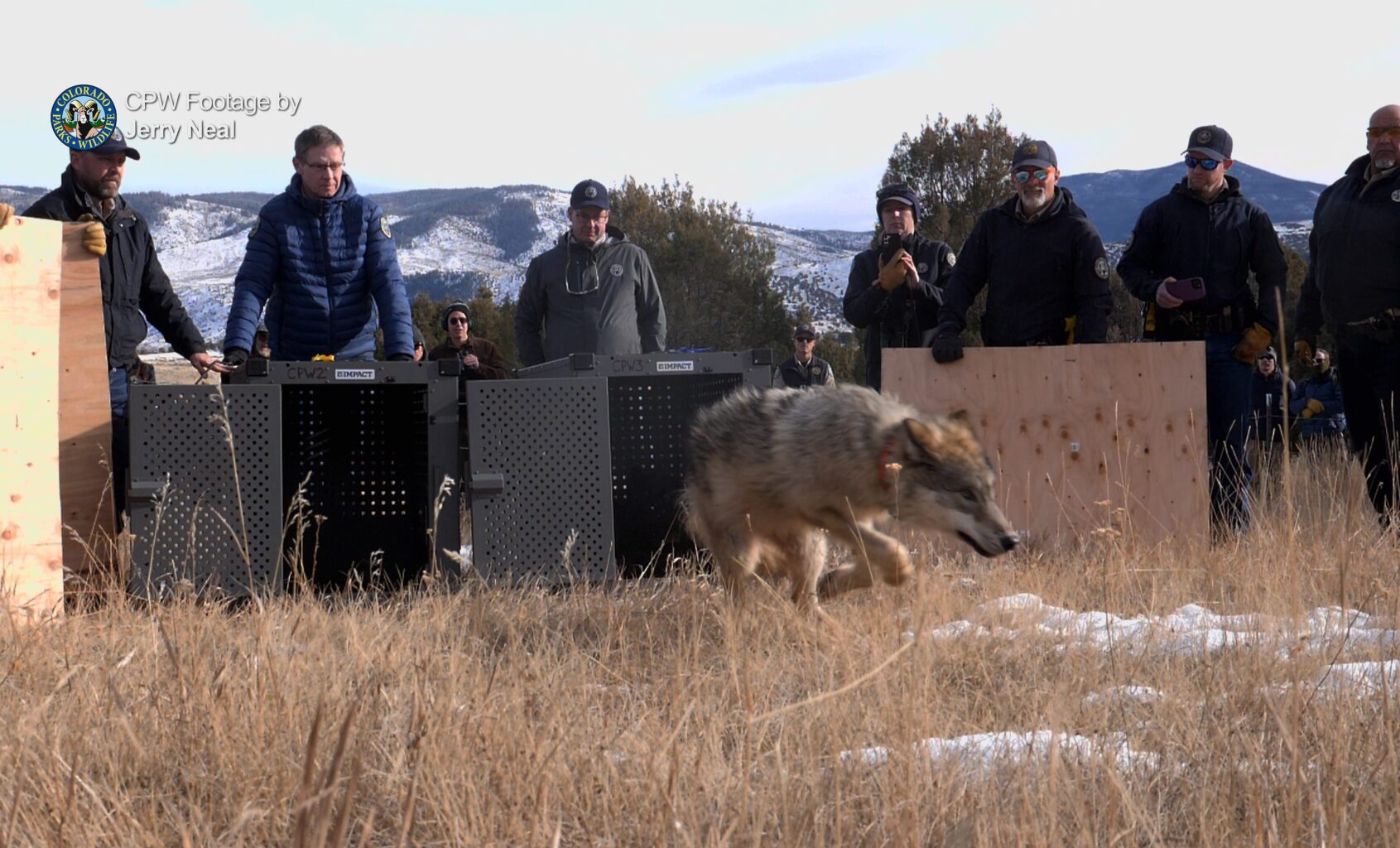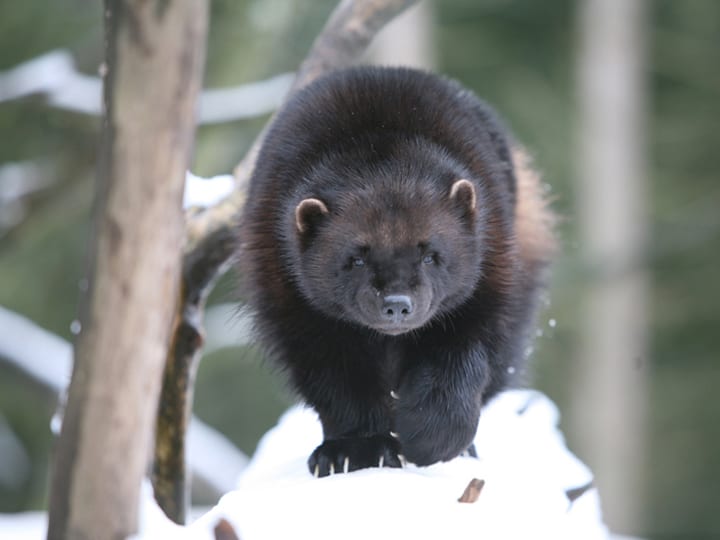The Colorado state legislative session ended on May 8th, but Governor Polis has only recently taken action on several key wildlife bills that made it to his desk. This was the first legislative session after wolves were reintroduced to Colorado this winter, and the reverberations of that restoration effort had a significant impact on the session.

Colorado Parks and Wildlife released five gray wolves onto public land in Grand County,
Colorado on Monday, December 18, 2023. Pictured is wolf 2303-OR.
Perhaps the biggest and best news from a wildlife perspective is the signing of SB24-171: Restoration of Wolverines. This legislation welcomes home another native, Endangered Species Act listed icon to Colorado’s mountains. Unlike wolves, wolverines are primarily scavengers (though they can be effective predators). But like wolves, wolverines fill an important ecological niche. Plus, their latin name is Gulo gulo, how fun is that? While a step forward for Colorado, the wolverine legislation was, for some legislators, a move to retain more control over the reintroduction process during a year of continued ire over Proposition 114, the voter-led wolf reintroduction effort. While we are hopeful that wolverine reintroduction happens swiftly in Colorado, the legislation requires the U.S. Fish and Wildlife Service to develop a “10(j) rule” before such reintroduction can occur.

Wolverine. Photo by Doug Chadwick.
Another sign of progress is that Colorado Parks and Wildlife (CPW) will now study and protect rare plants and invertebrates. Many if not most state wildlife agencies do not have the authority to conserve these incredibly important species, as funding and regulations are focused on mammals and fish (especially game species). This paradigm leaves critical species, including pollinators, out in the cold without protection or resources to steward their survival. Adding all wildlife to the charge of these agencies is not only crucial for biodiversity, but it also shows that these agencies are here to serve everyone – not just hunters and anglers, not just wolf advocates, but all people who depend on healthy, intact ecosystems.
But the news was not all good (is it ever?!). There was an unusual and surprisingly uncivil fight over Governor Polis’ appointments to the CPW Commission. Two of Polis’ appointments, Jessica Beaulieu, an attorney with a wildlife ecology degree who manages the Animal Law Program at University of Denver’s Strum School of Law, and Gary Skiba, a long-serving CPW employee and respected biologist, were rejected by the Senate Agriculture and Natural Resources Committee for not being aligned enough with hunters and agriculture interests. Beaulieu was eventually confirmed by the full Senate. However, Skiba resigned due to pressure from the hunting community, even though he is a proponent of hunting. A number of prominent hunters, outfitters, ranchers, and even a county commissioner lied to elected officials in an effort to sink Skiba’s candidacy.
Colorado continues to push wildlife conservation in a positive direction under the leadership of Governor Polis and a suite of thoughtful CPW Commissioners. However, anti-progress, anti-wildlife, and anti-democratic sentiments are still powerful in the halls of the Colorado Capitol.
We will continue to fight for all of Colorado’s wildlife. And we will work to ensure that archaic ideas about who gets a say in how wildlife is managed are relegated to the history books.

Photo by Cris Gonzales